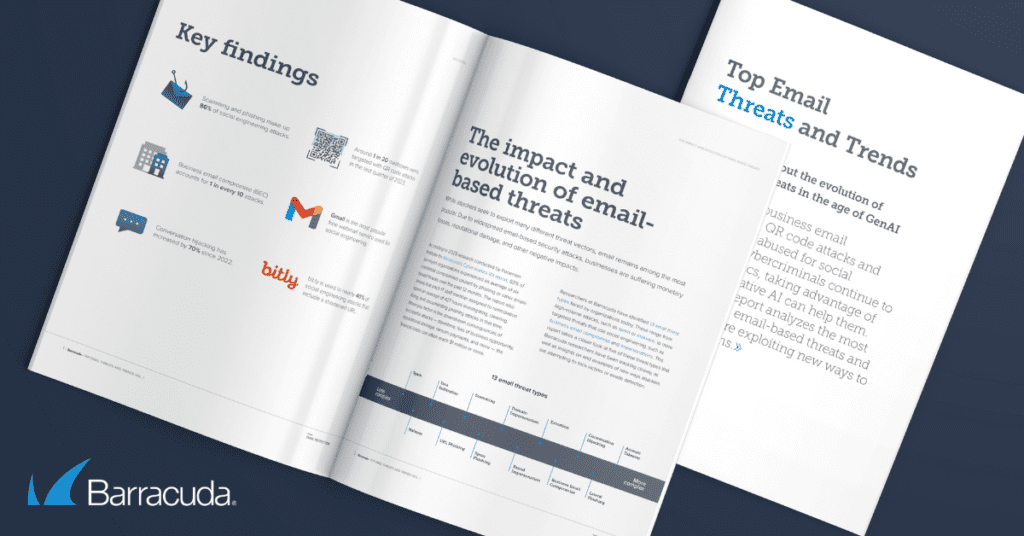 October is Cybersecurity Awareness Month, making it an ideal time for managed service providers (MSPs) to educate their clients about phishing threats. Most people log into various online accounts daily, never considering that cybercriminals may try to trick them into giving up their credentials. However, phishing is one of the most common types of cybercrimes, making it highly likely that your clients will encounter it soon if they have not already.
October is Cybersecurity Awareness Month, making it an ideal time for managed service providers (MSPs) to educate their clients about phishing threats. Most people log into various online accounts daily, never considering that cybercriminals may try to trick them into giving up their credentials. However, phishing is one of the most common types of cybercrimes, making it highly likely that your clients will encounter it soon if they have not already.
Fortunately, as an MSP, you are in an excellent position to educate your clients on how to avoid phishing attacks while positioning your company as a trustworthy information source.
Organize webinars and workshops
Consider hosting several webinars and websites to draw attention to October as Cybersecurity Awareness Month. Mention phishing as your theme and explain that it was chosen because of how frequently these attacks happen.
Put yourself in the position of potential attendees by covering actionable topics and anticipating their most likely questions. For example, one of your events could explain the distinction between spam and phishing. During a single day in 2023, people in the United States sent 8 billion spam emails, emphasizing the massive prevalence of those messages. However, although most people would rather not get those communications, not all spam is a phishing attempt.
When planning the length and time of the webinars and workshops, remain sensitive that people will be attending from various time zones and may be setting aside their other responsibilities to be there. Choose times that suit most people who sign up or offer multiple sessions to be more accommodating. Also, set expectations by explaining how long the session will last and sticking to those specifics to respect people’s other obligations.
Distribute educational newsletters
Since you probably already have email addresses for clients and others who have shown interest in your company, it makes sense to utilize that information and create a newsletter of relevant information. Use Cybersecurity Awareness Month and your phishing theme for the first edition, and then develop other themed content to release in the coming months.
Begin by giving recipients an easy-to-read rundown of how phishing attacks happen. Mention some telltale signs, such as how cybercriminals often impersonate brands and insist that people must respond urgently to avoid undesirable outcomes. Then, transition into noting some of the frequent consequences of phishing attacks. Tailor the message to specific industries when appropriate. For example, cybercrimes affecting the financial services industry cost 40 percent more than those in other sectors. It and health care are the most impersonated sectors in phishing attacks, but all are at risk.
Ensure your newsletter has empowering content that teaches people how to prevent phishing attacks proactively. For example, one of the best strategies is to always doubt the content, especially if the sender insists on urgency. Additionally, people should never reply to suspicious emails to get clarification. Otherwise, they may just be engaging with scammers. The better alternative is to contact companies by phone to ask about the legitimacy of strange emails.
Provide ongoing support and training
Although Cybersecurity Awareness Month presents a fantastic opportunity for you to teach clients about phishing and other notable topics, it is important to maintain the momentum during additional times of the year. That dedication will let clients know you are there for them and have the expertise to give support with security needs as they arise.
One possibility is to build a dedicated cybersecurity portal with videos, self-guided courses, infographics and other knowledge-enriching materials. Create it as a destination full of trustworthy, branded content that builds your reputation as a reliable cybersecurity partner.
Another option is to schedule one-on-one video calls between your company’s cybersecurity department and clients. That way, you can get detailed information about the specific challenges facing the people who depend on your MSP offerings. Participants will also appreciate the opportunities to get customized support for their emerging cybersecurity requirements and concerns.
Keep your security measures current
Clients will get more value from your educational efforts if they know your company follows all applicable best practices to prevent cyberattacks. However, it is more difficult than some MSPs anticipate. Consider a 2024 study where 39 percent said keeping up with cybersecurity technologies and solutions was their biggest daily challenge. Additionally, participants cited in-house skills shortages as their biggest security risks.
An increased awareness of what your company does well and which cybersecurity issues it must address urgently will make it easier to allocate resources and set timelines for fixing shortcomings. Having an outside expert perform a detailed audit is also a good idea since it is often much more difficult for those already familiar with an organization to recognize where it must improve.
Another way to show clients that you take cybersecurity seriously is for people within the MSP company to earn more relevant certifications in this area. They will be updated about securing information in the cloud, how to perform penetration testing and other specifics, depending on the kind they wish to get. Mentioning those educational credentials is an excellent way to show current and prospective clients that your company prioritizes cybersecurity, understands the changing landscape and knows which steps to take to protect their data.
Commit beyond Cybersecurity Awareness Month
These tips will help you use Cybersecurity Awareness Month to educate clients about phishing while positioning your MSP as a trusted and authoritative entity. Make your presence known in later months by continually releasing high-quality content and other resources to provide support, strategies and advice.
Photo: wk1003mike / Shutterstock

